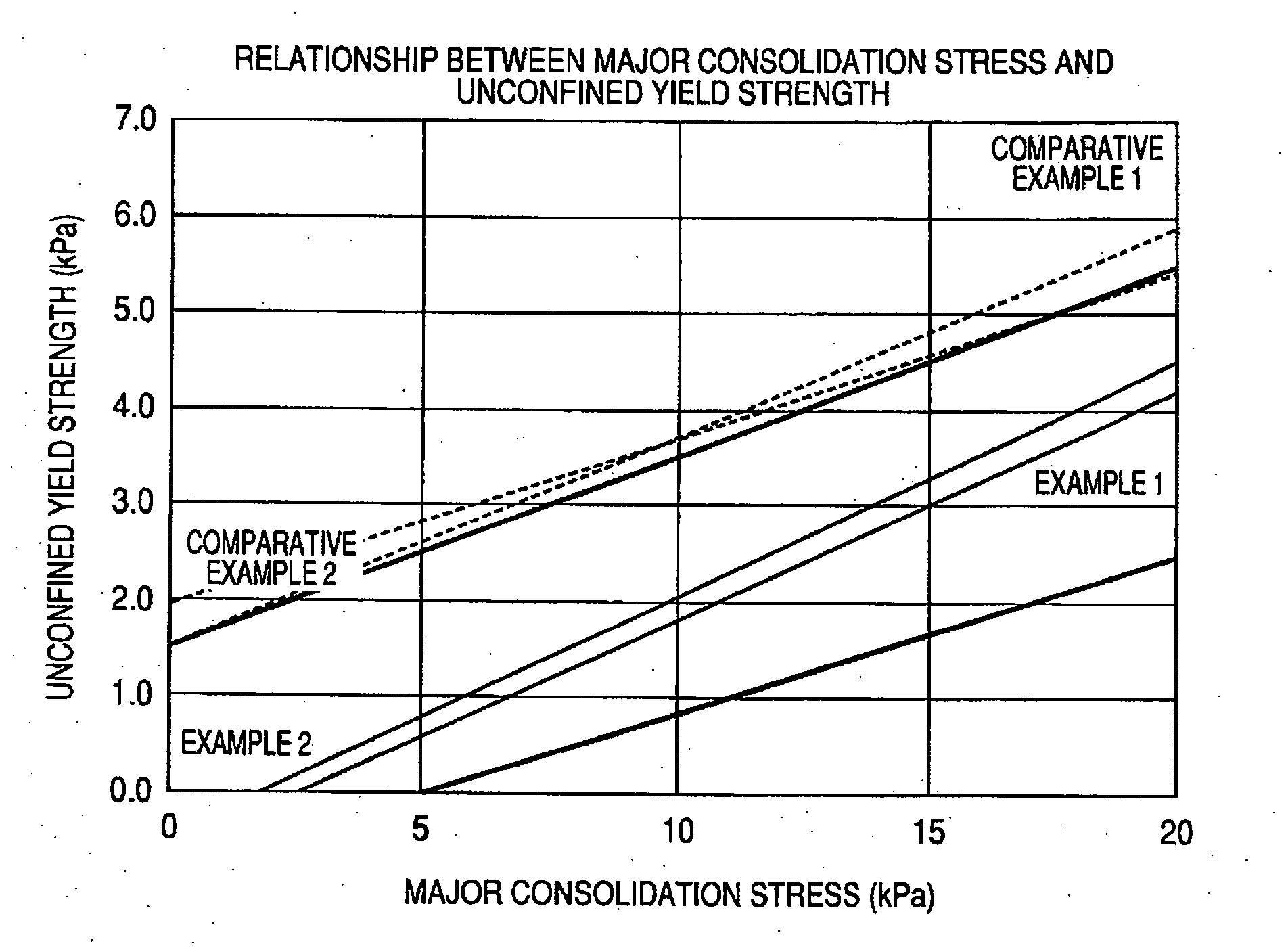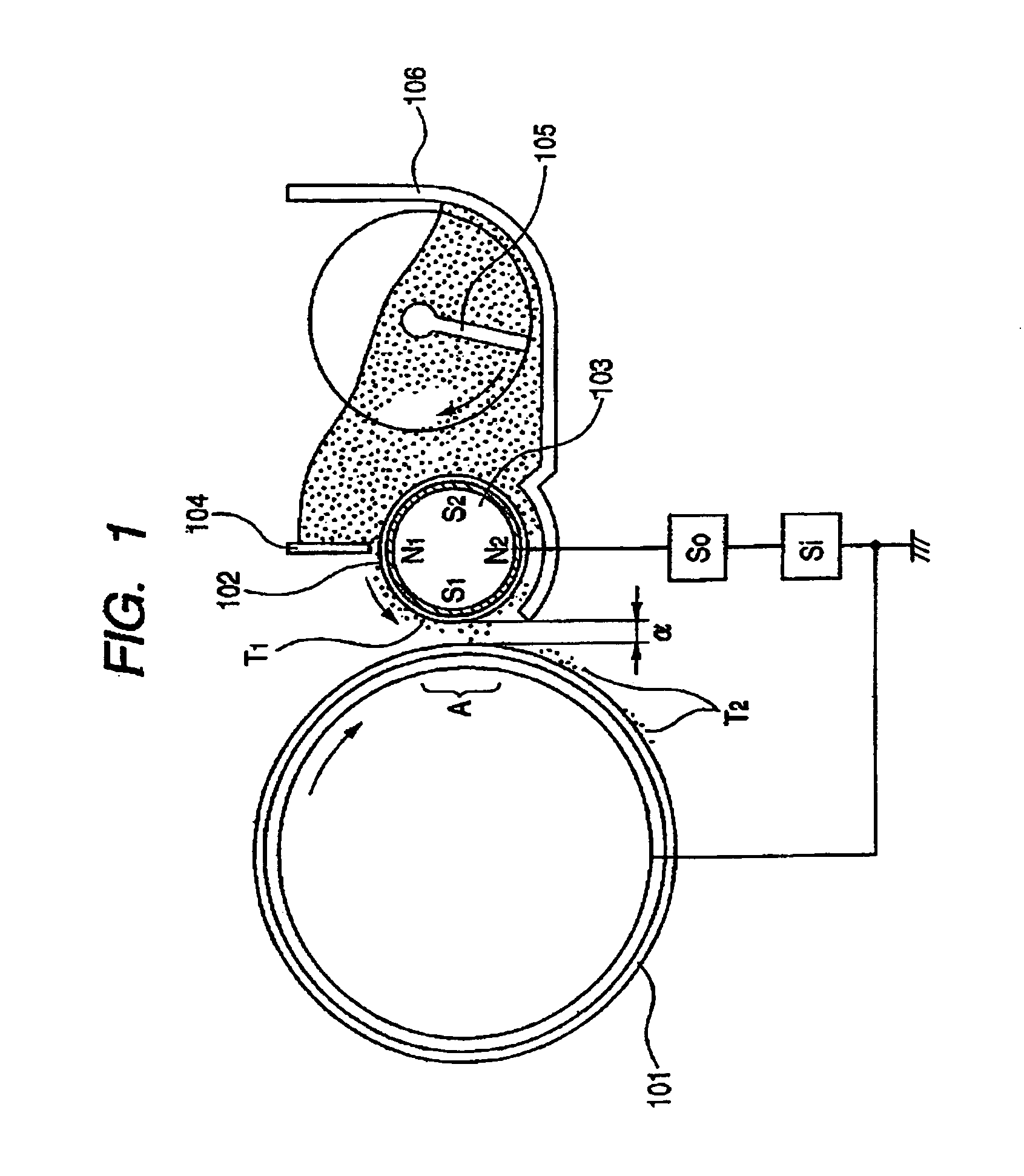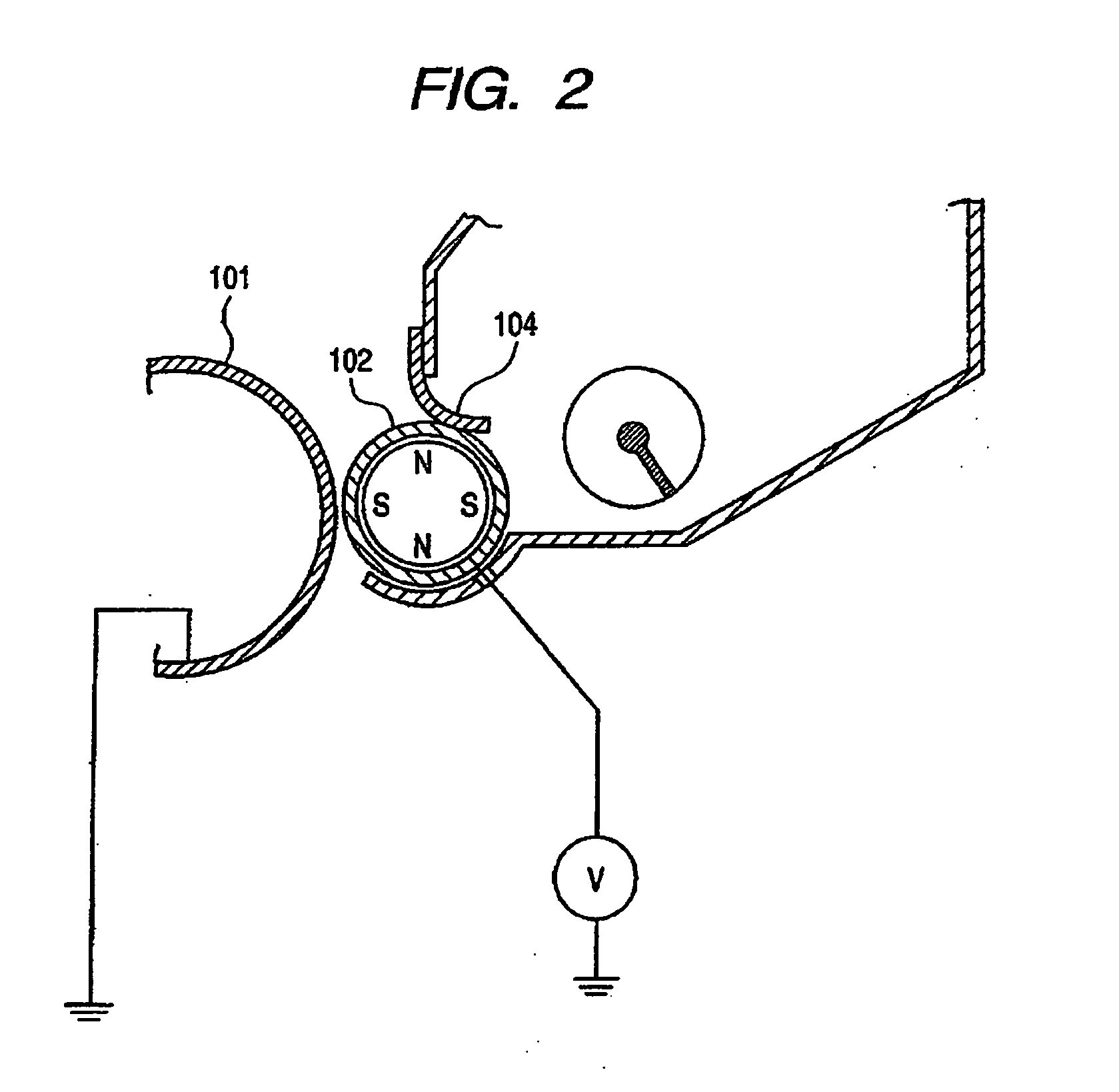Positively chargeable developer
- Summary
- Abstract
- Description
- Claims
- Application Information
AI Technical Summary
Benefits of technology
Problems solved by technology
Method used
Image
Examples
example 1
[0204] Binder resin C-1 100 parts by mass
[0205] Magnetic iron oxide particles (octahedron, number average particle size: 0.20 μm) [0206] 90 parts by mass
[0207] Wax b (Fischer-Tropsch wax, Table 2 shows the physical properties. Highest endothermic peak temperature: 101° C., number average molecular weight: 1,500, weight average molecular weight: 2,500) 4 parts by mass
[0208] Charge control agent A (triphenylmethane lake pigment shown below) 2 parts by mass
[0209] After the above materials had been pre-mixed by means of a Henschel mixer, the mixture was melted and kneaded by means of a biaxial kneading extruder.
[0210] The resultant kneaded product was cooled and coarsely pulverized by means of a hammer mill. After that, the coarsely pulverized product was finely pulverized by means of a pulverizer using a jet stream, and the resultant finely pulverized powder was classified by means of a multi-division classifier utilizing a Coanda effect to produce toner particles. The zeta poten...
example 2
[0226] A developer 2 was produced in the same manner as in Example 1 except that the formulation described in Table 3 was adopted (see Table 1 for a binder resin and Table 2 for a wax). The toner particles in the developer 2 were dispersed into water, and the pH of the dispersion liquid was measured. The pH was 4. Table 3 shows the physical properties of the developer thus obtained. Tables 4 to 6 show the results of the same tests as those of Example 1.
[0227] It should be noted that the pH of the dispersion liquid prepared by dispersing the toner particles according to each of Examples 3 to 7 and Comparative Examples 1 to 5 into water was 4.
example 3
[0228] A developer 3 was produced in the same manner as in Example 1 except that the formulation described in Table 3 was adopted (see Table 1 for a binder resin and Table 2 for a wax). Zinc oxide particles used instead of alumina particles as an inorganic fine powder had a zeta potential of 8.3 mV at pH=4 and a BET specific surface area of 30 m2 / g. Table 3 shows the physical properties of the developer thus obtained. Tables 4 to 6 show the results of the same tests as those of Example 1.
PUM
 Login to View More
Login to View More Abstract
Description
Claims
Application Information
 Login to View More
Login to View More - R&D Engineer
- R&D Manager
- IP Professional
- Industry Leading Data Capabilities
- Powerful AI technology
- Patent DNA Extraction
Browse by: Latest US Patents, China's latest patents, Technical Efficacy Thesaurus, Application Domain, Technology Topic, Popular Technical Reports.
© 2024 PatSnap. All rights reserved.Legal|Privacy policy|Modern Slavery Act Transparency Statement|Sitemap|About US| Contact US: help@patsnap.com










